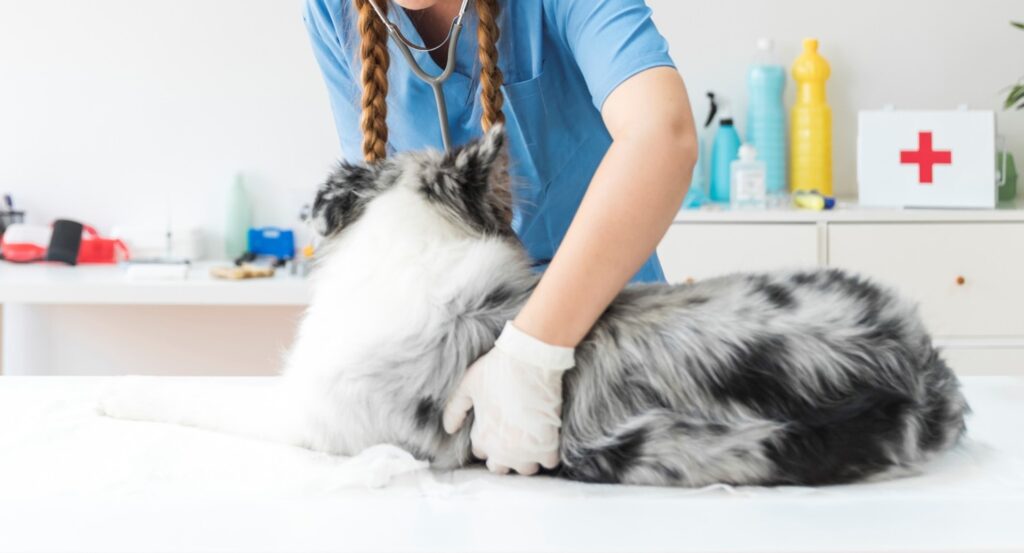
Introduction
As a loving pet owner, it’s natural to want to provide the best vet care for your furry friend. However, knowing when to seek emergency veterinary care can be a daunting task. This comprehensive guide will help you identify situations that require immediate attention and provide valuable insights into emergency veterinary services.
Understanding Vet Care Emergencies
As a responsible pet owner, it’s crucial to be aware of common veterinary emergencies and know when to seek immediate medical attention. By recognizing the signs and taking swift action, you can significantly increase your pet’s chances of a full recovery.
Common Vet Care Emergencies
Here are some common veterinary emergencies that require prompt attention:
- Severe Trauma: Accidents, such as being hit by a car or falling from a height, can cause severe injuries. Symptoms may include bleeding, broken bones, or difficulty breathing.
- Poisoning: Ingesting toxic substances, like household cleaners, medications, or plants, can be life-threatening. Signs of poisoning may include vomiting, diarrhea, seizures, or lethargy.
- Heatstroke: Overheating can be fatal, especially for brachycephalic breeds (flat-faced dogs like Bulldogs and Pugs). Symptoms include excessive panting, rapid breathing, increased heart rate, and lethargy.
- Severe Allergic Reactions: Allergic reactions to insect stings, medications, or food can cause difficulty breathing, swelling, and hives.
- Acute Illness: Sudden onset of illness, such as vomiting, diarrhea, or loss of appetite, may indicate a serious underlying condition.
When to Seek Immediate Veterinary Care
If you notice any of the following signs in your pet, seek immediate veterinary care:
- Difficulty Breathing: Struggling to breathe, rapid breathing, or excessive panting.
- Severe Bleeding: Significant blood loss from any wound.
- Seizures: Uncontrolled shaking or convulsions.
- Collapse or Unconsciousness: Inability to stand or respond to stimuli.
- Severe Pain: Whining, crying, or guarding a specific area.
- Ingestion of a Toxic Substance: If you suspect your pet has ingested poison, contact a veterinarian or animal poison control immediately.

Preparing for a Veterinary Emergency
Being prepared for a veterinary emergency can save valuable time and potentially your pet’s life. Here are some tips:
- Know Your Veterinarian’s Emergency Contact Information: Have your veterinarian’s emergency phone number readily available.
- Assemble an Emergency Kit: Keep a pet first-aid kit stocked with essential supplies like bandages, antiseptic, tweezers, and a pet carrier.
- Microchip Your Pet: Micro chipping can help reunite you with your lost pet.
- Have a Recent Photo of Your Pet: A recent photo can aid in identification if your pet goes missing.
- Maintain Up-to-Date Medical Records: Keep track of your pet’s vaccination records, medical history, and any allergies.
Here are 10 signs that your pet may be sick:
- Lethargy: If your pet seems unusually tired, sluggish, or uninterested in their usual activities, it could be a sign of illness.
- Changes in Appetite: A sudden decrease or increase in appetite can be a red flag.
- Changes in Drinking Habits: Excessive thirst or a decrease in water intake can indicate underlying health issues.
- Vomiting or Diarrhea: These are common symptoms of various illnesses, including food poisoning or intestinal problems.
- Coughing or Sneezing: Persistent coughing or sneezing can be a sign of respiratory infections or allergies.
- Difficulty Breathing: Rapid or labored breathing, wheezing, or open-mouth breathing can be serious.
- Changes in Behavior: Unusual aggression, anxiety, or hiding can signal illness or pain.
- Changes in Bowel Movements: Straining, constipation, or diarrhea can be indicative of digestive issues.
- Changes in Urination: Increased or decreased urination, difficulty urinating, or blood in the urine can be concerning.
- Changes in Appearance: Weight loss, dull coat, or excessive shedding can be symptoms of underlying health problems.
Emergency Veterinary Services
Emergency veterinary clinics are equipped to handle a wide range of urgent cases. They have experienced veterinarians and staff who can provide immediate care for your pet. When seeking emergency veterinary care, consider the following:
- Location: Choose a clinic that is conveniently located and accessible, especially during nighttime or weekend hours.
- Reputation: Research the clinic’s reputation and read reviews from other pet owners.
- Cost: While cost is a concern, it’s important to prioritize your pet’s health. Emergency veterinary care can be expensive, so consider pet insurance to help offset the costs.
Animal Hospital of Aurora is your trusted partner in pet care. Our dedicated team of experienced veterinarians and compassionate staff are committed to providing comprehensive healthcare services for your furry friends. From routine check-ups and vaccinations to advanced surgical procedures and emergency care, we offer a wide range of services tailored to your pet’s unique needs. We prioritize a warm and welcoming environment, ensuring a stress-free experience for both pets and their owners.
Conclusion
By understanding the signs of a veterinary emergency and knowing when to seek immediate help, you can increase your pet’s chances of a full recovery. Remember, early intervention is key in treating many veterinary emergencies.




